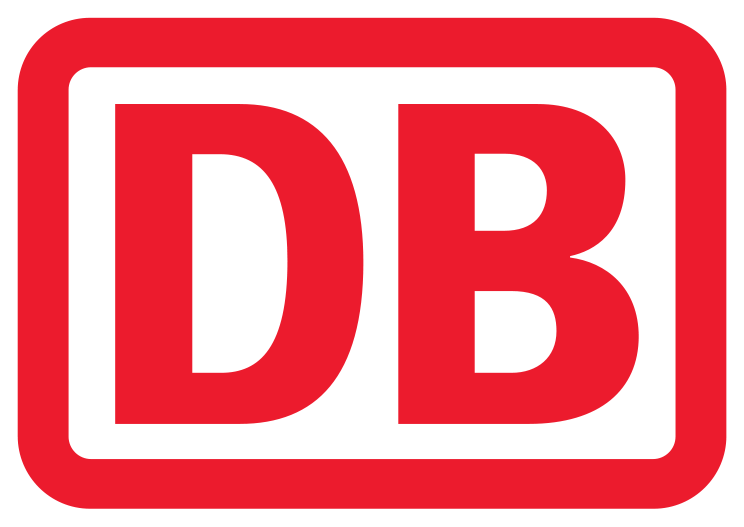Intensive negotiation training for purchasers
Guaranteed profitable negotiations!

What makes purchasers tick?
What makes negotiation partners tick? And how can you best adapt to suppliers in negotiations?
With the help of the DISG® model, personal facets, strengths and potential for development are made visible. It makes it easier to better assess both yourself and negotiation partners and to tailor your negotiation strategy and tactics to your counterpart. The DISG® model creates the basis for personal development.
The DISG® model is a scientifically validated analysis of potential strengths and areas of development that has been used internationally for decades. For this purpose, it is necessary to complete and evaluate a questionnaire in advance. The completed questionnaire forms the basis for the subsequent evaluation discussion with the trainers. Based on the results, targeted work is carried out during the attendance phases to further develop strengths and talents.
Evaluation meeting
A personal evaluation meeting with the:der trainer takes place during the first face-to-face seminar.
Duration: approx. 30 minutes.
The first face-to-face module lays the foundation for successful negotiation. This module provides training on how to prepare negotiations optimally and how to conduct purchasing negotiations systematically, purposefully and convincingly.
The attendance phase is designed in such a way that identified strengths are further developed and optimization potential in negotiation is specifically exploited.
Between the first and second face-to-face module, there is a phone with the:der trainer .
In coaching, you have the opportunity to prepare a real negotiation from your own practice with the:der trainer or to work on other topics that help in negotiations.
Self-study phase: videocasts and work materials
Videocasts and other work materials are available in the online learning environment.
Topics from the first attendance module are practiced in depth in the self-study phase.
A solid foundation has been laid for successful negotiations in purchasing. Purchasing negotiations are well prepared and the negotiation tools are ready for use. In the second face-to-face training course, negotiation skills are further deepened in order to successfully reach the goal even in difficult situations. This rounds off your skills as a professional buyer .
The attendance phase is designed in such a way that identified strengths are further developed and optimization potential in negotiation is specifically exploited.
Contents
Communication basics for effective purchasing negotiations
- The 4 sides of a message.
- Body language, gestures, facial expressions, posture.
- Questioning techniques, types of questions and active listening.
- Use small talk appropriately to obtain information.
- Dealing with different personalities.
The four phases of purchasing negotiations
- Preparation, clarification, proposal and agreement phase.
Start well prepared: negotiation objectives, information matrix, concession matrix and negotiation framework
- SMART targets; set maximum and minimum targets.
- Develop negotiation alternatives.
- BATNA (Best Alternative to Negotiated Agreement).
- Define information.
- The concession matrix - planning concessions.
- Defining the negotiation framework: ZOPA method.
Negotiating according to the Harvard concept
- Tough in the matter - gentle in dealing with the: negotiation partner.
- Negotiating on an equal footing.
- Personal basic attitude.
Conducting successful purchasing negotiations
- Clarification phase: Building a relationship with the negotiation partner , defining negotiation strategies, applying questioning techniques, clarifying and probing, correctly assessing your own position of power and that of your counterpart.
- Exchange of interests: Bartering concessions, keeping the power in the conversation.
- The proposal phase: make suggestions, have the best alternative BATNA ready, put together a package.
- The agreement phase: no concessions without consideration.
Reflection on the self-study/practical phase
- Dealing with different personalities.
- Deepening: Negotiating according to the Harvard concept.
Factual negotiation with a competing negotiation partner on the purchasing side.
- Negotiations with several parties and interests.
- Principles of successful bargaining.
- Professional handling of negotiating tricks, unfair methods and manipulative dialectics.
- Mastering aggressive behavior of the negotiating partner.
- Fend off attacks.
Conducting difficult purchasing negotiations: Powerful suppliers, selling centers, renegotiation & Co.
- Negotiating with more powerful partners.
- Purchasing negotiations with several negotiating partners (Selling Center).
- Successful defense against price increases.
- Dealing with negative emotions of the negotiating partner.
- Manage supplier complaints with confidence.
- Delivering negative news for the supplier.
- Successful renegotiation due to e.g: Optimization of the purchasing result, poor performance of the supplier, improvement of delivery conditions.
Professional conflict management for the:the professional buyer
- Conflict management: including conflict resolution strategies.
- The three-phase model of conflict resolution.
- Fact-based negotiation in conflicts according to the Harvard concept.
Learning environment
In your online learning environment, you will find useful information, downloads and extra services for this training course once you have registered.
Your benefit
- This training can significantly strengthen your negotiating power with suppliers .
- Fast return on investment! The next real purchasing negotiation pays off effectively - thanks to an individual and intensive training concept with lasting learning success.
- The trainers are experienced negotiators and business coaches and support participants in practical implementation.
The training teaches the following skills, among others:
- Achieve negotiation goals more easily and in a more targeted manner,
- Prepare negotiations professionally and conduct them in a structured manner,
- better assess your counterpart and make optimum use of negotiating leeway,
- Use negotiation and argumentation techniques systematically,
- react appropriately to unfair negotiation practices,
- increase your own negotiating power and overcome objections with confidence,
- remain steadfast even in challenging situations, such as price demands.
Methods
Classroom training, DISG® model including evaluation discussion, phone, self-learning phases. Trainer input, exchange of experience, practical simulations, video analysis with constructive feedback, peer-to-peer exchange with practical advice, videocasts, work aids, checklists.
Training concept
This blended learning is characterized by a sustainable training concept:
- Individual strengths and development potential are analyzed using the DISG® job profile. The personality analysis includes a personal evaluation interview.
- The attendance phases are designed to further develop the strengths identified during the analysis and to exploit optimization potential in negotiation behavior.
- Between the face-to-face modules, individual coaching supports preparation for an upcoming real negotiation.
- Videocasts and practical work assignments during the self-study phases promote learning success. The acquired knowledge is systematically deepened and consolidated.
Recommended for
For employees from materials management with basic negotiation experience. For employees from related areas, such as R&D, production, logistics, quality management, scheduling, etc., who also sit at the negotiating table with suppliers . This qualification is also suitable for the procurement of services.
Certificate
The high-quality certificate from the Haufe Akademie is issued after successful completion of the program.
Further recommendations for "Negotiation training for purchasers intensive"
What makes purchasers tick?
What makes negotiation partners tick? And how can you best adapt to suppliers in negotiations?
With the help of the DISG® model, personal facets, strengths and potential for development are made visible. It makes it easier to better assess both yourself and negotiation partners and to tailor your negotiation strategy and tactics to your counterpart. The DISG® model creates the basis for personal development.
The DISG® model is a scientifically validated analysis of potential strengths and areas of development that has been used internationally for decades. For this purpose, it is necessary to complete and evaluate a questionnaire in advance. The completed questionnaire forms the basis for the subsequent evaluation discussion with the trainers. Based on the results, targeted work is carried out during the attendance phases to further develop strengths and talents.
Evaluation meeting
A personal evaluation meeting with the:der trainer takes place during the first seminar.
Duration: approx. 30 minutes.
After an individual evaluation meeting with the:der trainer, in which your own strengths and potential for optimization are identified, the foundation for successful negotiation is laid in the following module. In this module, you will be trained to prepare negotiations optimally and to conduct purchasing negotiations systematically, purposefully and convincingly.
The module is designed in such a way that identified strengths are further developed and optimization potential in negotiation is specifically exploited.
Between the first and second online module, there is a phone with the:der trainer .
In coaching, you have the opportunity to prepare a real negotiation from your own practice with the:der trainer or to work on other topics that help in negotiations.
Self-study phase: videocasts and work materials
Videocasts and other work materials are available in the online learning environment.
Topics from the first module are practiced in depth in the self-study phase.
A solid foundation has been laid for successful negotiations in purchasing. Purchasing negotiations are well prepared and the negotiation tools are ready for use. In the second training , negotiation skills are further deepened in order to reach the goal successfully even in difficult situations. This rounds off your skills as a professional buyer .
The online phase is designed in such a way that identified strengths are further developed and optimization potential in negotiation is specifically exploited.
Contents
Communication basics for effective purchasing negotiations
- The 4 sides of a message.
- Body language, gestures, facial expressions, posture.
- Questioning techniques, types of questions and active listening.
- Use small talk appropriately to obtain information.
- Dealing with different personalities.
The four phases of purchasing negotiations
- Preparation, clarification, proposal and agreement phase.
Start well prepared: negotiation objectives, information matrix, concession matrix and negotiation framework
- SMART targets; set maximum and minimum targets.
- Develop negotiation alternatives.
- BATNA (Best Alternative to Negotiated Agreement).
- Define information.
- The concession matrix - planning concessions.
- Defining the negotiation framework: ZOPA method.
Negotiating according to the Harvard concept
- Tough in the matter - gentle in dealing with the: negotiation partner.
- Negotiating on an equal footing.
- Personal basic attitude.
Conducting successful purchasing negotiations
- Clarification phase: Building a relationship with the negotiating partner, defining negotiation strategies, applying questioning techniques, clarifying and probing, correctly assessing your own position of power and that of your counterpart.
- Exchange of interests: Bartering concessions, keeping the power in the conversation.
- The proposal phase: make suggestions, have the best alternative BATNA ready, put together a package.
- The agreement phase: no concessions without consideration.
Reflection on the self-study/practical phase
- Dealing with different personalities.
- Deepening: Negotiating according to the Harvard concept.
Factual negotiation with a competing negotiation partner on the purchasing side.
- Negotiations with several parties and interests.
- Principles of successful bargaining.
- Professional handling of negotiating tricks, unfair methods and manipulative dialectics.
- Mastering aggressive behavior of the negotiating partner.
- Fend off attacks.
Conducting difficult purchasing negotiations: Powerful suppliers, selling centers, renegotiation & Co.
- Negotiating with more powerful partners.
- Purchasing negotiations with several negotiating partners (Selling Center).
- Successful defense against price increases.
- Dealing with negative emotions of the negotiating partner.
- Manage supplier complaints with confidence.
- Delivering negative news for the supplier.
- Successful renegotiation due to e.g: Optimization of the purchasing result, poor performance of the supplier, improvement of delivery conditions.
Professional conflict management for the:the professional buyer
- Conflict management: including conflict resolution strategies.
- The three-phase model of conflict resolution.
- Fact-based negotiation in conflicts according to the Harvard concept.
Learning environment
In your online learning environment, you will find useful information, downloads and extra services for this training course once you have registered.
Your benefit
- This training can significantly strengthen your negotiating power with suppliers .
- Fast return on investment! The next real purchasing negotiation pays off effectively - thanks to an individual and intensive training concept with lasting learning success.
- The trainers are experienced negotiators and business coaches and support participants in practical implementation.
The training teaches the following skills, among others:
- Achieve negotiation goals more easily and in a more targeted manner,
- Prepare negotiations professionally and conduct them in a structured manner,
- better assess your counterpart and make optimum use of negotiating leeway,
- Use negotiation and argumentation techniques systematically,
- react appropriately to unfair negotiation practices,
- increase your own negotiating power and overcome objections with confidence,
- remain steadfast even in challenging situations, such as price demands.
Methods
Classroom training, DISG® model including evaluation discussion, phone, self-learning phases. Trainer input, exchange of experience, practical simulations, video analysis with constructive feedback, peer-to-peer exchange with practical advice, videocasts, work aids, checklists.
Training concept
This blended learning is characterized by a sustainable training concept:
- Individual strengths and development potential are analyzed using the DISG® job profile. The personality analysis includes a personal evaluation interview.
- The attendance phases are designed to further develop the strengths identified during the analysis and to exploit optimization potential in negotiation behavior.
- Between the face-to-face modules, individual coaching supports preparation for an upcoming real negotiation.
- Videocasts and practical work assignments during the self-study phases promote learning success. The acquired knowledge is systematically deepened and consolidated.
Recommended for
For employees from materials management with basic negotiation experience. For employees from related areas, such as R&D, production, logistics, quality management, scheduling, etc., who also sit at the negotiating table with suppliers . This qualification is also suitable for the procurement of services.
Final examination
The high-quality certificate from the Haufe Akademie is issued after successful completion of the program.
Further recommendations for "Negotiation training for purchasers intensive"

Whitepaper: 10 negotiation tips you should know
How to achieve your goals in negotiations! Because successful negotiations are no coincidence! If you want to achieve top results in negotiations, you need clear strategies and tactics. There are also a few very basic things to bear in mind that make or break every negotiation.
1943
33683
Start dates and details


 4.6
4.6








